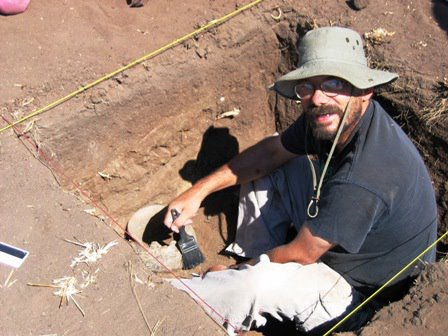My March 2006 issue of Natural History (sorry, no direct links to the articles) has a response from its Editor-in-Chief Peter Brown to several letter writers questioning Brown’s October 2005 editorial, “Disciplined Change”. In that essay, Brown asks the rhetorical question:
“…you’d think that diversity of viewpoints would be a core value of science – that “teach the controversy” as proponents of so-called intelligent design put it, would be an unassailable principle of science education. Haven’t we learned by now that every opinion counts, that every voice deserves respect?”
His response is blunt, to the point, and dead-on “center bull” (as we used to say when completely removing a target’s bull’s-eye in competitive shooting):
“…science doesn’t work that way. Not for nothing are the branches of science called disciplines. In science, opinion polls don’t matter. Not everyone’s voice is equal. Yes, science is, or should be, open to anyone – anyone with the talent and tenacity to pursue it. And if you do earn your scientific “union card”, you are still not immune from criticism…In fact, the criticism you attract from other scientists, grounded in evidence and the canons of valid argument, is a good measure of how seriously your scientific views are taken.
But scientific debate is not for the uninformed. Scientific controversy is for scientists, to be hashed out in conferences and peer-reviewed journals, not in the elementary science classroom or the high school science textbook”.
One reader considered Brown’s editorial “disturbing”, suggesting that she was not harmed by knowing that “continental drift” was an alternate theory to the one advocated by her own biology teacher many years prior. And she follows by pointing out that many scientists have since come to support continental drift as the dominant theory now. Hence, the obvious question hangs in the air: what’s the problem with “teaching the controversy”?
As Brown points out in response: “teach the controversy” is nothing more than “verbal ju-jitsu”, playing on the sensibility of fairness. But science is not “fair” as Brown has already noted and instead “has its own rules of engagement”. The letter-writer does not comprehend the fact that the intelligent design crowd has never played by the rules of scientific engagement. The irony is that her example of continental drift, if she knew the particulars its rise as the predominant explanation for current continental locations, demonstrates the precise opposite point she is trying to make.
Alfred Wegener first proposed his idea of continental drift in 1912. And when he was soundly rejected by the scientific community what did he do? Write popular books to convince the non-scientific public the scientists were wrong? Appeal to the media and claim there was a controversy the rest of the scientific world was ignoring? Start a publicity campaign to get the idea in high school science classes? No. He did what every decent, ethical, hardworking scientist does: he “...devoted the rest of his life to doggedly pursuing additional evidence to defend his theory”. The theory of plate tectonics overtook existing explanations for one reason and one reason only: other scientists, through hard work and sweat, developed, documented and disseminated mounds of evidence in support of the idea. They developed hypotheses and tested them. Eventually, existing observations could not be explained by other ideas as readily as they could be explained by continental drift. This is what science achieves when the "rules of engagement" are adhered to.
The best intelligent design can currently achieve is front runner of a prima donna popularity contest among the scientifically illiterate. It seeks scientific parity without having done the dirty (and lonely) work of science.
Friday, February 24, 2006
Subscribe to:
Post Comments (Atom)




No comments:
Post a Comment